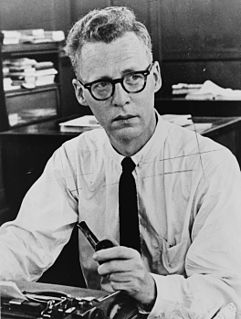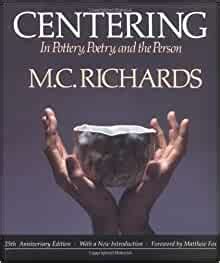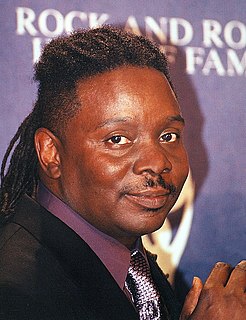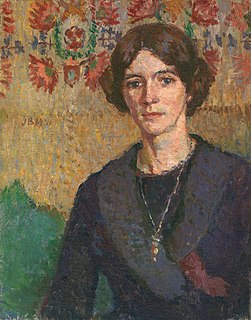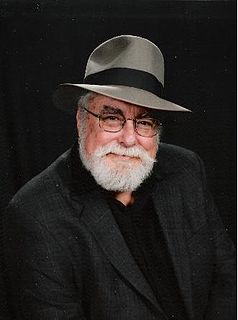A Quote by Murray Kempton
By adherence to a special set of rules, the child of the shabby-genteel can sometimes leap across the time which has passed by his family and function in the real world without doing violence to the hopes his mother held out for him. But those who cannot live within this pattern are the freaks and poets, and they travel a different road to peace.
Related Quotes
The child takes in his world as if it were food. And his world nourishes or starves him. Nothing escapes his thirst. Secrets are impossible. He identifies with his surroundings and they live within him unconsciously; it is perhaps for this reason that the small child has been characterized as naturally religious.
The mother's and father's attitudes toward the child correspond to the child's own needs.... Mother has the function of making himsecure in life, father has the function of teaching him, guiding him to cope with those problems with which the particular society the child has been born into confronts him.
Step back in time; look closely at the child in the very arms of his mother; see the external world reflected for the first time in the yet unclear mirror of his understanding; study the first examples which strike his eyes; listen to the first words which arouse within him the slumbering power of thought; watch the first struggles which he has to undergo; only then will you comprehend the source of his prejudices, the habits, and the passions which are to rule his life. The entire man, so to speak, comes fully formed in the wrappings of his cradle.
However patriarchal the world, at home the child knows that his mother is the source of all power. The hand that rocks the cradlerules his world. . . . The son never forgets that he owes his life to his mother, not just the creation of it but the maintenance of it, and that he owes her a debt he cannot conceivably repay, but which she may call in at any time.
By the time Kafka was seven or eight years old, he already had a relatively dark view of the world derived from experiences in his own family. This told him that the world was organized in a strictly hierarchical manner and that those on the top were allowed to mete out punishment in any way they chose. They were entitled to leave those on the bottom uninformed about the rules to which they subscribed; they weren't even required to follow their own rules - this is how Kafka described it in his later Letter to My Father.
Nelson Mandela set his course a long time ago, and in word and deed, years of determination, sacrifice, and faith--he set a new standard in the likes of Gandhi, Mother Teresa, and Martin Luther King, Jr. --changing the world and all of us for the better. I was one of those regular citizens watching when he made his first trip here after being released from prison. Amazing memories. I regret that I never met him in person. May he rest in peace
Weeks passed, and the little Rabbit grew very old and shabby, but the Boy loved him just as much. He loved him so hard that he loved all his whiskers off, and the pink lining to his ears turned grey, and his brown spots faded. He even began to lose his shape, and he scarcely looked like a rabbit any more, except to the Boy. To him he was always beautiful, and that was all that the little Rabbit cared about. He didn't mind how he looked to other people, because the nursery magic had made him Real, and when you are Real shabbiness doesn't matter.
William 'Big Bill' Rockefeller, who sold cancer 'cures' from a medicine wagon, taught him to leap into his arms from a tall chair. One time his father held his arms out to catch him but pulled them away as little John jumped. The fallen son was told sternly, 'Remember, never trust anyone completely, not even me.'
If we, who live outside asylums, act as if we lived in a fictitious world- that is to say, if we are consistent with our beliefs- we cannot adjust ourselves to actual conditions, and so fall into many avoidable semantic difficulties. But the so-called normal person practically never abides by his beliefs, and when his beliefs are building for him a fictitious world, he saves his neck by not abiding by them. A so-called "insane" person acts upon his beliefs, and so cannot adjust himself to a world which is quite different from his fancy.
Man is more than his environment. It is from the innate quality of the Spirit in him, his inner storehouse, that he draws those ideas, his intuitions, which unify his perceptions of the external world instantaneously with a value which is qualitative and not quantitative, and which he embodies in the works of his culture - those achievements which belong not only to one particular time but to all times, and mark the path of his upward progress.
No skill, no special aptitude, no vividness of imagination or precision of thinking would go unrecognized because the child who possessed it was of one sex rather than the other. No child would be relentlessly shaped to one pattern of behavior, but instead there should be many patterns, in a world that had learned to allow to each individual the pattern which was most congenial to his gifts.
